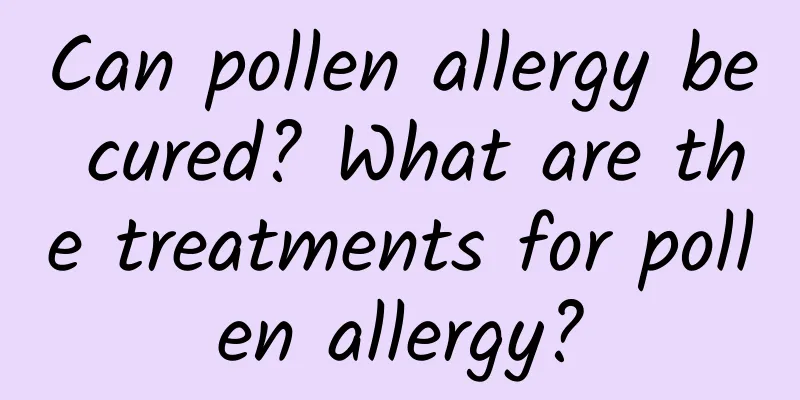[Medical Q&A] Is it rhinitis or a cold that your child has repeated nasal congestion and runny nose? How to deal with it?
![[Medical Q&A] Is it rhinitis or a cold that your child has repeated nasal congestion and runny nose? How to deal with it?](/upload/images/67eff862ed769.webp)
|
Planner: Chinese Medical Association Reviewer: Niu Chao, deputy chief physician, Children's Hospital Affiliated to Chongqing Medical University Colds are usually acute upper respiratory tract diseases caused by viral infections. When children have a cold, in addition to nasal congestion and runny nose, they are often accompanied by fever, cough, sore throat, headache, general fatigue and other symptoms. Generally, they can heal themselves in about a week. Rhinitis is an inflammation of the nasal mucosa, which can be divided into acute rhinitis and chronic rhinitis. The initial symptoms of acute rhinitis are similar to those of a cold, with dryness, burning sensation, itching, sneezing, followed by nasal congestion, watery nasal discharge, loss of smell, and obstructive nasal sounds. However, chronic rhinitis is mainly manifested by repeated or persistent nasal congestion, mucous runny nose, which is sometimes difficult to blow out, and generally without systemic symptoms such as fever. If the child has a cold and the symptoms are mild, you can let the child rest more, drink more water, keep the indoor air circulating, and avoid crowds. If the fever exceeds 38.5℃, you can use antipyretics as prescribed by the doctor. If there is a bacterial infection, you can use antibacterial drugs as prescribed by the doctor. If your child has rhinitis, you must first identify the type of rhinitis. For allergic rhinitis, try to avoid your child's contact with known allergens, such as pollen, dust mites, etc. You can use normal saline to clean the nasal cavity to reduce inflammation and secretions of the nasal mucosa. When the symptoms are severe, use nasal glucocorticoids, antihistamines and other drugs under the guidance of a doctor. For non-allergic rhinitis, nasal irrigation can also be used. If there is a bacterial infection, antibacterial drugs may need to be used, but you must strictly follow the doctor's advice. |
<<: [Medical Q&A] How to avoid re-narrowing of blood vessels after coronary artery stent surgery?
Recommend
Can I abort the baby when I am 3 months pregnant?
Some families are looking forward to the arrival ...
What to do if a woman's vagina is swollen
For women, when it comes to maintaining their bod...
I always feel numbness in my fingers. Is it a stroke? It could be one of the following
A friend told Huazi that he had been feeling numb...
How to first aid for sudden myocardial infarction? These nursing knowledge can help you
Author: Huang Lihong Unit: Community Health Servi...
Is it normal for leucorrhea to be watery and odorless?
Many women have little understanding of leucorrhe...
Leucorrhea is stringy before menstruation
Every woman has a few uncomfortable days every mo...
Pregnant women should not be ashamed to talk about anal itching
Many mothers often experience anal itching during...
Is backache due to early pregnancy or menstruation?
Women will experience many uncomfortable symptoms...
What is the cause of small bumps in the vagina?
Since women's vaginas are always in a humid e...
What is causing the leucorrhea with odor and lower abdominal pain?
What causes leucorrhea with odor and lower abdomi...
What is this swelling on the front of my knee?
This is the 3124th article of Da Yi Xiao Hu A few...
[Everyone talks about popular science] Winter health special topic (II) Save it quickly ~ Prevention of respiratory infections in winter, see here
The so-called respiratory tract infection mainly ...
The dangers of multiple uterine fibroids
Uterine fibroids are a common gynecological disea...
Bleeding after sex is not clean
Some female friends will experience bleeding afte...
Gynecological diseases often recur
Unlike male reproductive organs, female reproduct...









